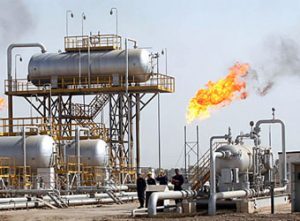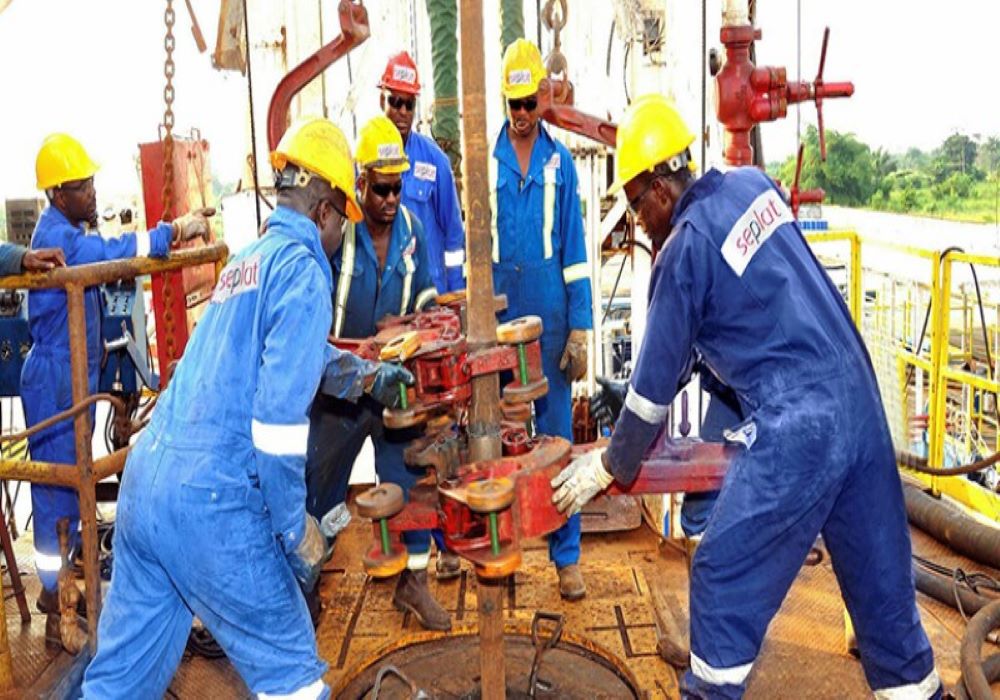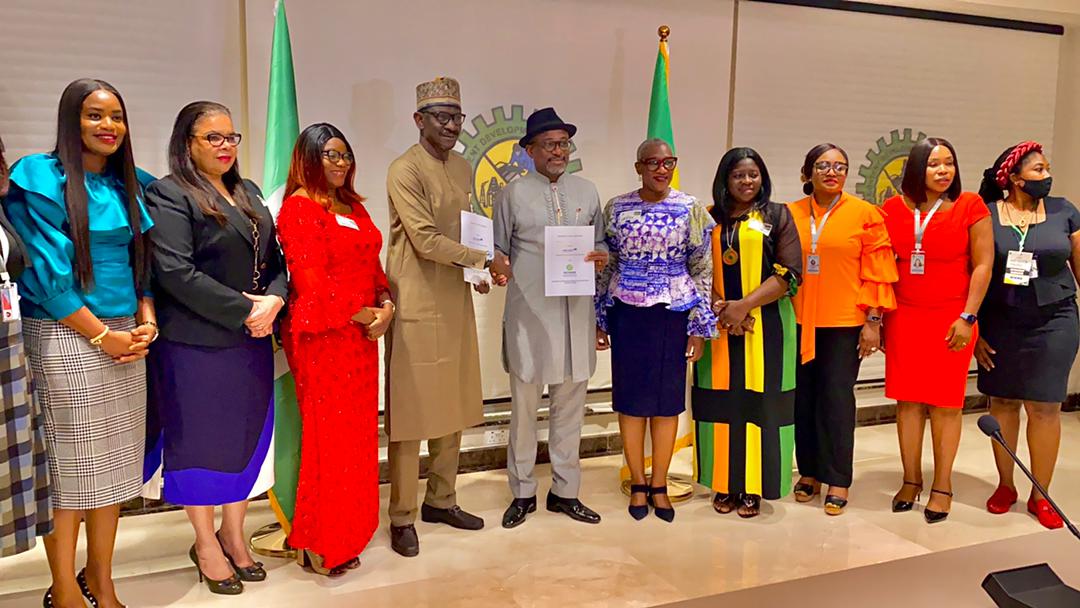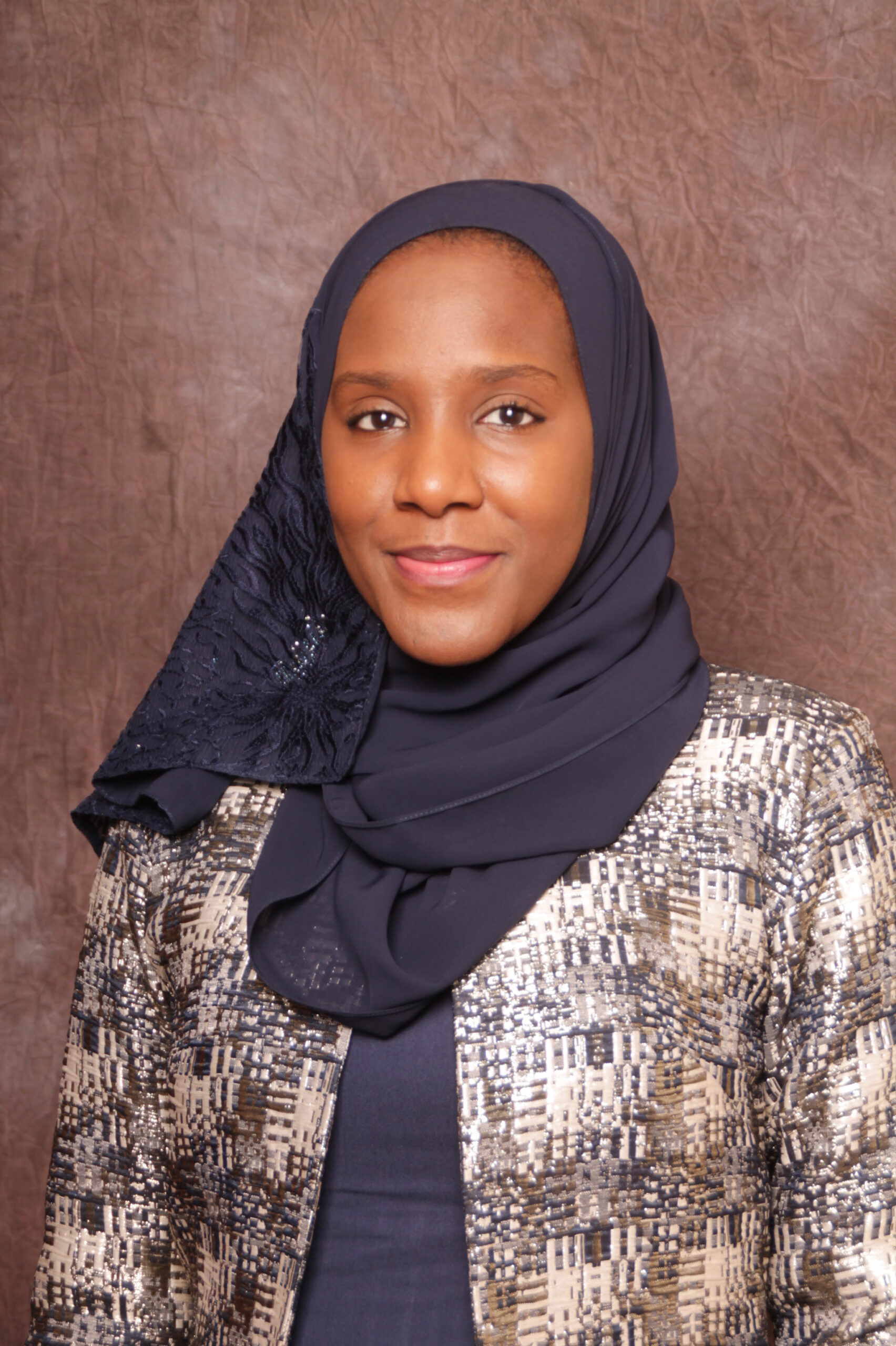Energy
Gas development, a major carbon reduction move – Seplat Energy

Yemie ADEOYE
Dubai, UAE- SEPLAT Energy Plc, a leading Nigerian independent energy company listed on both the Nigerian and London stock exchanges, has identified its gas development programmes as a major boost for Nigeria’s energy transition agenda as well as the global call for carbon reduction.
Roger Brown, The Chief Executive Officer, Seplat Energy Plc, said this while addressing the media at the recently concluded Africa Oil Week (AOW) in Dubai, United Arab Emirates.
According to the Seplat Energy CEO, most developed countries currently have gas grid bases forming a strong pedestal for renewables, which is far beyond what is obtainable in Nigeria where the grid base is diesel power.
“To transit to renewables, you need a grid base that works. So, our Decade of Gas mantra in Nigeria is aimed to provide the right grid base for that transition and Seplat Energy is well aligned to that. If you do not have the right grid base and want to go the way of renewables, you could end up going off-grid with small scale solar panels all around. It is important for the world to understand the peculiarities of Nigeria and that the country needs the right base to transit to renewables.”
Mr. Brown also spoke in a panel session dubbed ‘Upstream Value Creation: Unbounded Opportunities Post-COVID’ where he outlined the company’s business strides and as well as its future strategies. He also spoke on the Company’s values and continuous partnership with the AOW Brand at the AOW Drinks Reception sponsored by Seplat Energy.
Mr. Brown added: “Nigeria must have energy which is right for its population. It is got over 200 million people today and by 2050, there would probably be over 400 million Nigerians in this planet, which makes it the third most populous place in the world. For the 400 million people expected, we need to provide the right infrastructure. If you don’t, you are going to have a population migration as the average age in the country today is 18.”
He said Seplat Energy’s business plans are on three-pronged and there are three pillars to it. The pillar one, he noted, is the upstream oil and gas, where the Company is a big producer (independent) in-country.
“The pillar two is our gas processing business with existing and efficient gas plants, and by early 2023, we will be probably the biggest gas processor in-country. In our gas value chain, we have a critical model for electrification in- country. Our pillar three is the renewable business, and we are making very strong intent to say we are going to give the transition energy that is right for Nigeria. There is no point designing what is just good for other parts of the world and does not address the concerns in the areas where we operate,” he noted.
He explained, these pillars are there to not only deliver the right energy mix, but other issues prevalent in the Nigerian space, adding that: “Nigeria has been described as a rich oil producing country, but there is more gas. The federal government has identified this and has put forward the Decade of Gas narrative. The gas profile would last longer than that of oil as gas could be produced for a much longer period, and is an efficient fuel.
“The benefit of gas is very clear: it is a carbon reduction energy source today. Currently, Nigeria’s electricity source is predominantly off-grid diesel. Gas-fired power displaces the diesel option and has CO2 emission reduction of 30 to 50 per cent depending on the technology deployed. So, for every molecule of gas we put into the market, we displace carbon. By displacing diesel-fired power, we are actively reducing carbon. But for Seplat Energy, this carbon reduction has to be proven.“
For Seplat Energy’s social programmes, he said the Company had developed bespoke models based on the needs of its host communities, which is the reason its partnership with the communities has remained progressive. “Apart from our educational and health interventions and other areas of empowerment, we are still seeking more ways to grow and scale the partnership,” he stressed.
Speaking on the Company’s journey so far, Mr. Brown said it has been a huge amount of development in sub-Saharan Africa as far as the energy sector is concerned, of which the developments have been driven largely by the IOCs and also the national oil company working with them.
According to him, there hasn’t necessarily been a country-specific development, and that is where the opportunities lie.
He explained: “I will give an example of the Nigeria, which is where we are from. We bought our assets from the IOCs in 2010, and have continued to grow them over the years. We have been very successful in acquiring mature assets divested by the IOCs in Nigeria and growing the reserves base and production from those assets. When the company began operations in 2010, our primary assets (OMLs 4, 38 & 41) had 2P reserves of 148 MMboe. Over the last 11 years, we have executed several projects focused on converting stranded 2C resources (in Unappraised Discoveries and Partially Appraised Fields) and some producing fields) to 2P reserves, and have realized an organic growth in the assets’ 2P reserves to the current level of 275 MMboe. Over the same period, we have also drilled over 60 development wells in the assets, resulting in an increase in the average production from c.18 Mboepd to the current rate of c.40 Mboepd.
“Over the years, we have put a lot more infrastructure in place to develop the assets and as we add more assets, what we realized was that the assets themselves haven’t been generally as much as they would be in terms of output. A lot of technologies moved on massively, and the deployment of those technologies (simple onshore technologies as is the case for us) hasn’t been implemented to the level that is should be. Even with shale in the United States, everyone hitherto thought it was uneconomic; not until it was established that not all shale are the same. The companies and technologies in that shale spece got better and better, and there were new ways to improved the shake experience. Therefore, in Africa, there is a relapse of technologies coming in techniques and efficiency-wise. So, there is a lot of hidden value in developed and appraisal assets.
“That is what value creation is. It all depends on company you are looking at. Seplat Energy is a driver of growth in Nigeria. We’ve looked at the map and done our analyses, and have able to determine contingent resources into reserves and produced that. When you are buying assets that you don’t put a big valuation on contingent resources, then there huge unlocked potential.”
Energy
Asharami Synergy Unveils Fuelling Solutions In Omagwa
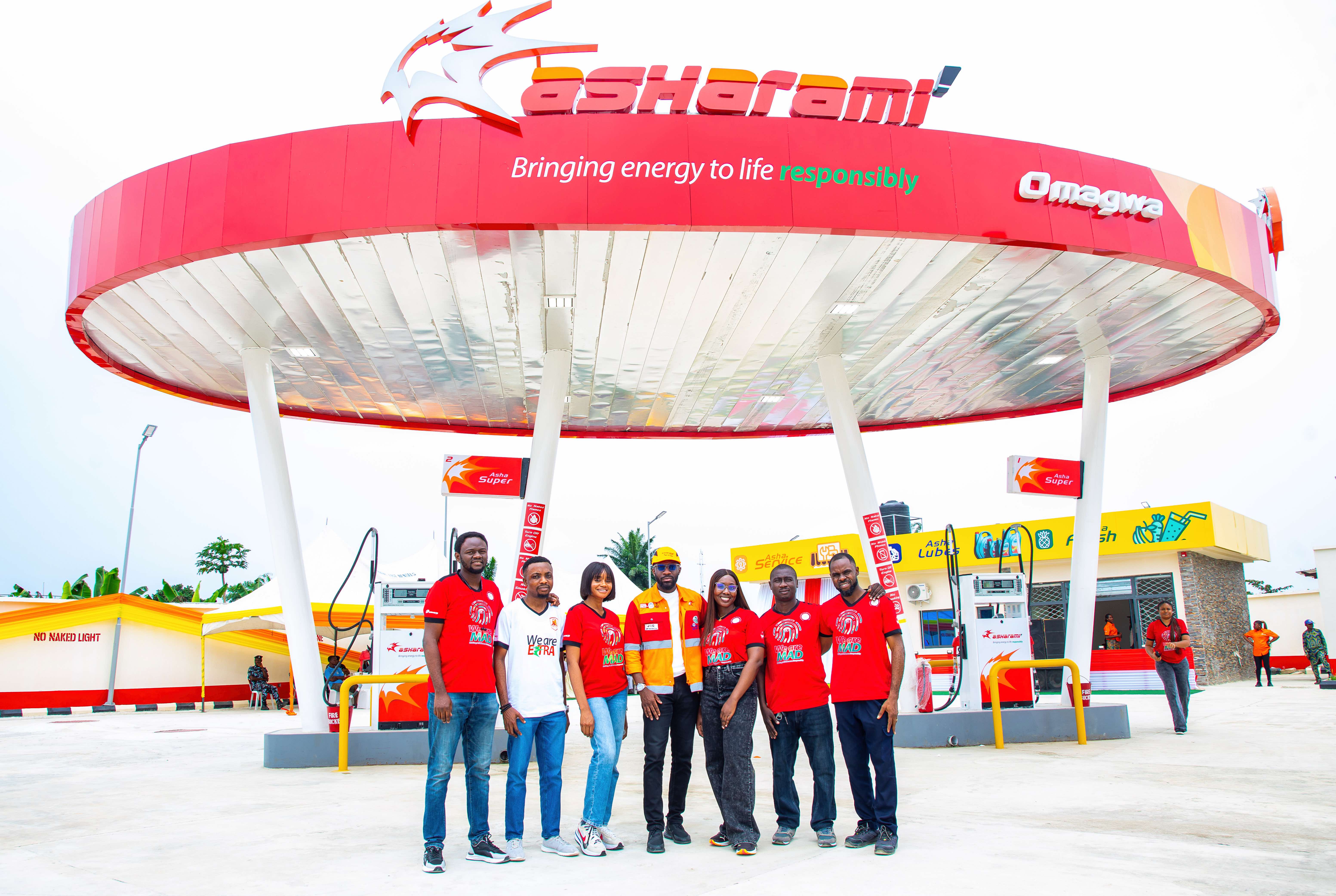
In line with its commitment to driving access to quality petroleum products, Asharami Synergy Limited, a leading Sahara Group downstream company, has said the public can now access exceptional fuelling solutions at its newly commissioned retail station in Omagwa, Rivers State.
Situated strategically along the Airport Road in Omagwa, the station, which features a storage capacity of 45,000 litres each for Automotive Gas Oil (AGO, also known as diesel) and Premium Motor Spirit (PMS, also known as petrol) is equipped with two pumps and four discharge nozzles for PMS and AGO.
The facility also has ample space for sundry services in a bid to ensure consumers get more “miles and smiles” as well as the energy to “go further” with Asharami’s world-class products.
“The Asharami Omagwa Retail Station is fully operational, offering a range of premium products and services. It’s a one-stop shop that also gives our esteemed customers eat-in and take-out restaurant services, shopping, as well as the Asha lubricants and Asha Service experience which will ensure premium care for all classes of automobiles and engines,” said Oladimeji Williams, Head, Government Relations and Business Development at Asharami Synergy.
ALSO READ: NNPCL Launches Utapate Crude Oil Blend, Eyes Production Expansion In 2025
At the Commissioning, Willaims said the new station represents an important step in Asharami Synergy’s expansion plan aimed at reaching and serving more communities responsibly. “This station is strategically positioned close to the airport, serving as the gateway for powering socio-economic development in the community and those close to it, while enabling Asharami Synergy integrate all aspects of its downstream business towards ensuring efficiency and value for our customers,” he stated.
Williams commended the Federal Airport Authority of Nigeria (FAAN) and the Omagwa community leaders for their support and collaboration throughout the project’s duration, describing it as a “seamless and productive process that highlights Asharami’s corporate stewardship and social impact” in the community.
Similarly, Ifesinachi Ezike, Regional General Manager (South South), FAAN, emphasized the broader significance of the new station, stating, “This occasion marks a significant milestone not just for Asharami Synergy but for the airport and the entire community. It marks not just an opening of a new facility but the beginning of a renewed commitment to enhancing the travel experience of all our passengers and stakeholders”.
In a move that underscores its commitment to sustainability and community development, Asharami Synergy also commissioned a solar-powered borehole during the launch. The borehole is set to improve access to clean and reliable water for residents, marking a tangible contribution to the local community.
“At Sahara, we are always making a difference—not just through our business operations; we are unwavering in our commitment to driving sustainable development and building partnerships that enhance the well-being of our host communities,” Williams added.
Energy
Awards Galore For Shell, Staff At NAPE 2024 Conference

The Shell companies in Nigeria and staff won awards in recognition of their robust participation at the 42nd Annual International Conference and Exhibition of the National Association of Petroleum Explorationists (NAPE), held in Lagos.
At the closing dinner of the event, the Managing Director of Shell Nigeria Exploration and Production Company (SNEPCo), Ronald Adams pledged sustained efforts by the company to address “the Nigerian energy trilemma by powering progress towards energy security in a sustainable manner”.
On the awards, the Shell was declared Best Overall Exhibitor and Best Exhibiting Energy company (International) just as Geophysicist Somime Oguntola took home the Award of Excellence for Oral Paper (second place).
The icing on the cake was a Shell staff, Johnbosco Uche, being installed as the new President of the NAPE.
It was gathered that the Shell companies in Nigeria have supported NAPE since its founding in 1975, using the skills and expertise of the large pool of energy professionals in its employment to improve its activities especially educational and mentoring programmes.
In addition to being a major sponsor of the 2024 conference, Shell mounted a high-profile exhibition, featuring among other things, career counselling, engagements on Nigerian Content and Contractor development and panel sessions on Women in Industry and Sustainability Energy Challenge.
A highlight was the Shell medical stand which attended to more than more than 500 conference participants and members of the public over the four days of the annual event. The doctors and nurses offered a wide range of services including laboratory tests, deworming, medical consultation as well as ophthalmology checks and distribution of nearly 300 eyeglasses.
Adams referred to the operations of SNEPCo as an example of Shell’s contribution to energy security in Nigeria. “As a result of sustained production from Bonga, we have provided funds to finance development, created a new generation of Nigerian Deepwater professionals, empowered indigenous contractors and service providers, and implemented social investments that have touched lives in the six geo-political zones of the country,” he said.
Adams added, “SNEPCo and indeed Shell are in Nigeria for the long haul. Our commitment is reflected in both our current and growth plans, all of which are grounded in principles of safety, affordability, and competitive performance.”
Energy
Accugas Denies Culpability In Akwa Ibom’s Power Outage

Owing to the persistent power outage, which has crippled economic and social life in most parts of Akwa Ibom State and environs, Accugas Limited has washed its hands off the ugly situation.
This was contained in a statement under the signature of its Communications Manager, Okwudili Onyia, in which the company traced the anomaly to a “fault in the 132-KV Aba-Itu transmission line”.
To ameliorate the situation, the company maintained that “It is imperative that the restoration of the Aba-Itu line is completed as soon as possible.”
In addition, the company pledged thus, “Accugas will continue to partner with, and support, the government of Akwa Ibom State towards achieving the government’s agenda for economic development and prosperity of the state.”
ALSO READ: NNPC Ltd To Supply 100mmscf/d Gas To Dangote Refinery
The statement reads, “Accugas Limited, a subsidiary of Savannah Energy, wishes to strongly deny the misinformation concerning its alleged involvement in the current power outage in Akwa Ibom State.
“The power cut in Akwa Ibom State is entirely due to the reported fault in the 132-KV Aba-Itu transmission line, which, unfortunately, is preventing power being transmitted from the National Grid into the State. It is imperative that the restoration of the Aba-Itu line is completed as soon as possible.
“Ibom Power Company (“IPC”) is one of 23 thermal power generation companies which channel power to the National Grid, which in turn disseminates all accumulated power to each State of the Federation through the electricity distribution companies (“Discos”). Indeed, Accugas supplies gas to enable c. 20% of Nigeria’s thermal generation capacity and, as such, is a critical enabler of the Nigerian economy.
“Within Akwa Ibom State, Accugas has been the sole supplier of gas to IPC since 2014 and, together with other Savannah subsidiaries, has invested over US$1.5 billion in gas development within the state. Furthermore, Savannah has recently invested c. US$45 million in a gas compression project at Accugas’ Uquo central processing facility at Esit Eket. Accugas’ commitments also extend to several social investment projects in the state. All the foregoing investments and projects, including other imminent investments Accugas intends to make in the State, demonstrate the Company’s long-term commitment to Akwa Ibom State and Nigeria.
“Accugas will continue to partner with, and support, the government of Akwa Ibom State towards achieving the government’s agenda for economic development and prosperity of the state.”

